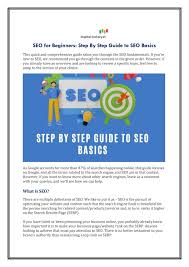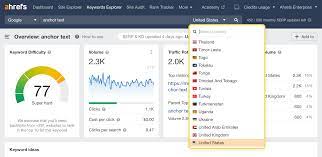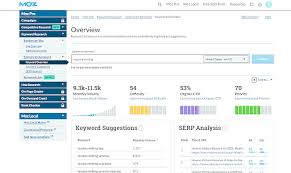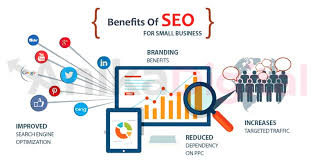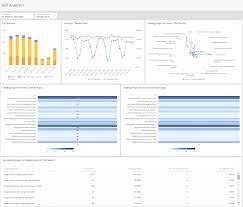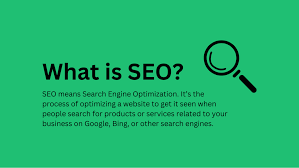Unlocking the Potential of SEO Content: A Guide to Effective Online Strategies
The Power of SEO Content
SEO content plays a crucial role in the digital marketing landscape, serving as the backbone of successful online strategies. In today’s competitive online world, creating high-quality, relevant, and engaging content is essential for improving search engine rankings and attracting organic traffic to your website.
What is SEO Content?
SEO content refers to any type of content created with the primary goal of attracting search engine traffic. This content is strategically crafted to include relevant keywords and phrases that users are likely to search for when looking for information related to your business or industry.
The Benefits of SEO Content
Effective SEO content offers a multitude of benefits for businesses:
- Improved Visibility: By optimising your content for search engines, you increase the likelihood of ranking higher in search results, making it easier for potential customers to find you.
- Increased Traffic: Well-optimised content can drive more organic traffic to your website, resulting in more leads and conversions.
- Enhanced User Experience: Quality SEO content not only attracts visitors but also keeps them engaged with valuable information that meets their needs.
- Builds Authority: Creating authoritative and informative content establishes your brand as an industry leader, earning trust and credibility from your audience.
- Long-Term Results: Unlike paid advertising, SEO content can deliver long-term results by continuing to attract organic traffic over time.
Tips for Creating Effective SEO Content
To make the most of your SEO content strategy, consider the following tips:
- Keyword Research: Identify relevant keywords and phrases that align with your business goals and target audience.
- Create Quality Content: Focus on producing valuable, well-written content that addresses user queries and provides solutions.
- Optimise Meta Tags: Use targeted keywords in meta titles and descriptions to improve click-through rates in search results.
…
In conclusion,
Incorporating SEO strategies into your content creation process is essential for achieving online success. By producing high-quality, optimised content that resonates with both search engines and users, you can enhance your visibility, attract more traffic, and build a strong online presence for your brand. Remember that consistency and relevance are key when it comes to creating effective SEO content that drives results over time.
8 Essential Tips for Crafting SEO-Optimised Content
- 1. Conduct keyword research to identify relevant terms and phrases for your content.
- 2. Create high-quality, engaging content that provides value to your audience.
- 3. Use headings, subheadings, and bullet points to improve readability and structure.
- 4. Optimise meta titles and descriptions with target keywords to improve click-through rates.
- 5. Include internal links to other relevant pages on your website for better navigation.
- 6. Optimise images with descriptive filenames and alt text for improved accessibility and SEO.
- 7. Regularly update and refresh your content to keep it current and relevant in search results.
- 8. Monitor performance using analytics tools to track the impact of your SEO efforts.
1. Conduct keyword research to identify relevant terms and phrases for your content.
Conducting thorough keyword research is a fundamental step in creating effective SEO content. By identifying relevant terms and phrases that align with your business objectives and target audience, you can optimise your content to attract organic traffic from search engines. Understanding the language that your potential customers use when searching for information allows you to strategically incorporate these keywords into your content, making it more discoverable and increasing its visibility in search results. By integrating the right keywords into your content, you can enhance its relevance and ensure that it resonates with both search engines and users, ultimately driving more traffic to your website.
2. Create high-quality, engaging content that provides value to your audience.
Creating high-quality, engaging content that offers real value to your audience is a fundamental aspect of effective SEO strategy. By focusing on producing content that is informative, relevant, and engaging, you not only attract the attention of search engines but also establish credibility and trust with your target audience. Valuable content that addresses their needs and interests not only helps improve your search engine rankings but also encourages user engagement, leading to increased traffic, conversions, and long-term success for your online presence.
3. Use headings, subheadings, and bullet points to improve readability and structure.
Utilising headings, subheadings, and bullet points is a valuable tip in SEO content creation. By incorporating these elements effectively, you can enhance the readability and structure of your content, making it easier for both users and search engines to navigate and understand the information presented. Headings and subheadings help to break down content into digestible sections, allowing readers to scan through the text quickly and locate relevant information. Bullet points further simplify complex ideas or lists, improving clarity and engagement. Overall, employing these formatting techniques not only improves the user experience but also signals to search engines the importance of specific content within your webpage.
4. Optimise meta titles and descriptions with target keywords to improve click-through rates.
Optimising meta titles and descriptions with target keywords is a crucial aspect of SEO content strategy. By incorporating relevant keywords in these elements, you can enhance your website’s visibility in search engine results and attract more clicks from users. A well-crafted meta title and description not only improve click-through rates but also provide a concise preview of your content, enticing users to visit your website for more information. This practice not only boosts your search engine rankings but also contributes to a more engaging and user-friendly online experience for visitors.
5. Include internal links to other relevant pages on your website for better navigation.
Including internal links to other relevant pages on your website is a crucial aspect of SEO content strategy. By strategically interlinking your content, you not only enhance the user experience by providing easy navigation but also help search engines discover and index more of your web pages. Internal linking establishes relationships between different pages, spreading link equity throughout your site and improving its overall authority. This practice not only boosts SEO but also encourages visitors to explore more of your website, increasing engagement and potentially leading to higher conversion rates.
6. Optimise images with descriptive filenames and alt text for improved accessibility and SEO.
Optimising images with descriptive filenames and alt text is a crucial aspect of SEO content strategy. By assigning relevant filenames and providing alt text that accurately describes the image, you not only enhance the accessibility of your website for visually impaired users but also improve your site’s SEO performance. Search engines rely on this information to understand the context of your images, making it easier for them to index and rank your content appropriately. Incorporating this practice ensures that your images contribute positively to both user experience and search engine visibility, ultimately boosting the overall effectiveness of your SEO efforts.
7. Regularly update and refresh your content to keep it current and relevant in search results.
Regularly updating and refreshing your content is a crucial aspect of effective SEO strategy. By keeping your content current and relevant, you not only signal to search engines that your website is active and up-to-date but also provide value to your audience by offering them the latest information. Fresh content is more likely to attract search engine crawlers, leading to improved indexing and potentially higher rankings in search results. By staying proactive in maintaining your content, you demonstrate a commitment to quality and relevance, ultimately enhancing your online visibility and engagement with users.
8. Monitor performance using analytics tools to track the impact of your SEO efforts.
Monitoring performance using analytics tools is a critical aspect of effective SEO content strategy. By utilising analytics tools, you can track and measure the impact of your SEO efforts in real-time. These tools provide valuable insights into key metrics such as website traffic, user engagement, conversion rates, and keyword rankings. By analysing this data, you can identify areas for improvement, adjust your content strategy accordingly, and ensure that your SEO efforts are driving tangible results for your business.

